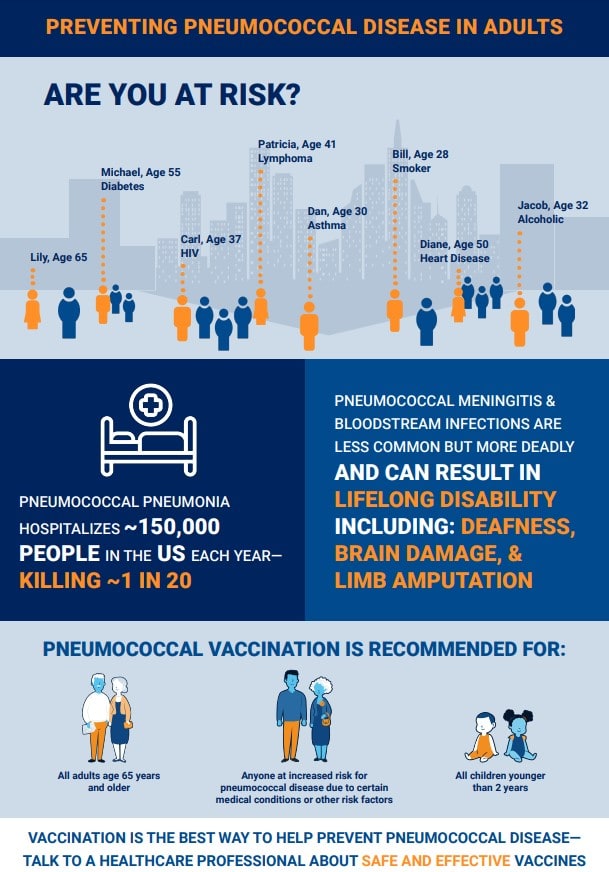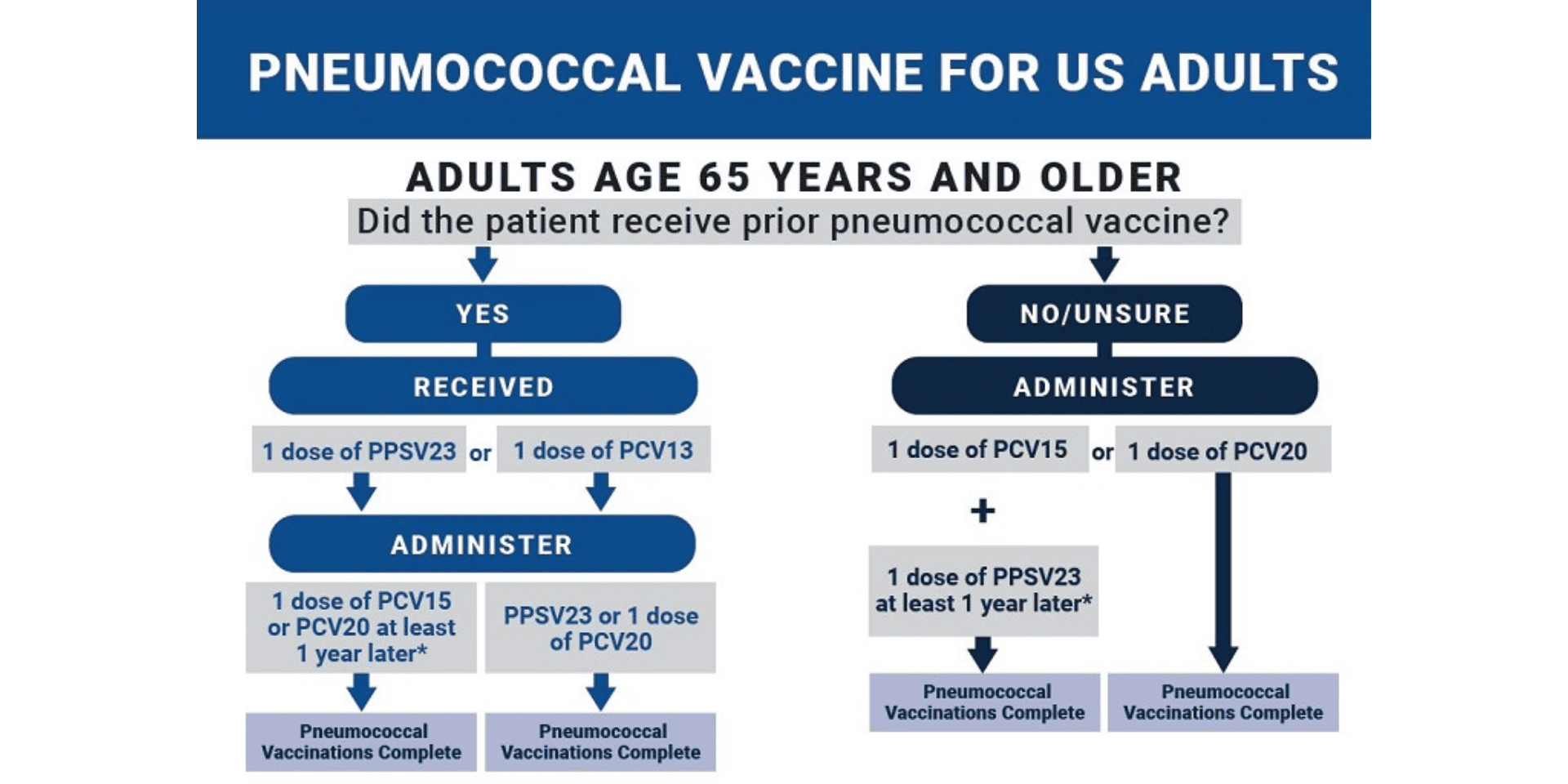
Mark was a relatively healthy young man when a serious case of pneumonia resulted in a hospital stay, surgery, and months of recovery. He did not know that being a smoker put him at increased risk for pneumococcal disease, and he had not been vaccinated. Unfortunately, he is not alone.
In the US, pneumococcal pneumonia causes approximately 150,000 hospitalizations each year, and about 1 in 20 individuals who get pneumococcal pneumonia will die. Despite the availability of safe and effective vaccines, many US adults remain unvaccinated.
Anyone can get pneumococcal disease, but some groups are at increased risk, including young children, older adults, and those with certain medical conditions or other risk factors. Communities of color are also at higher risk of complications from pneumococcal disease. Research has shown that Black males experience higher mortality rates from pneumonia than White males. Black and Hispanic adults age 65 years and older are also less likely to be vaccinated against pneumococcal disease than older adults of other races.
Vaccination is the best way to protect against pneumococcal disease and is currently recommended for:
- Children younger than age 2 years
- Adults age 65 years and older
- Individuals age 19 to 64 years with certain medical conditions or other risk factors
In the US, vaccination recommendations for adults age 65 years and older have changed with the introduction of two newly licensed pneumococcal conjugate vaccines. The Centers for Disease Control and Prevention (CDC) now recommends the use of either 20-valent pneumococcal conjugate vaccine (PCV20) alone or 15-valent pneumococcal conjugate vaccine (PCV15) in series with a 23-valent pneumococcal polysaccharide vaccine (PPSV23) for all adults age 65 years or older and for those age 19 to 64 years with certain underlying medical conditions or other risk factors who have not previously received a PCV vaccine or whose previous vaccination history is unknown.
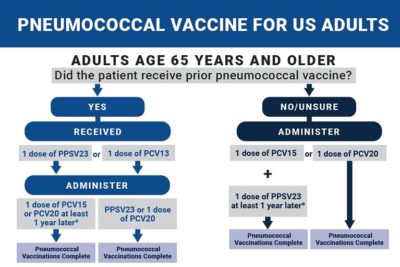 The new recommendations provide protection against additional pneumococcal serotypes and are intended to be simpler than the previous recommendation, which included shared clinical decision-making for PCV13 in certain older adults.
The new recommendations provide protection against additional pneumococcal serotypes and are intended to be simpler than the previous recommendation, which included shared clinical decision-making for PCV13 in certain older adults.
To raise awareness about the importance of pneumococcal vaccination in adults, the National Foundation for Infectious Diseases (NFID) has developed a decision tree tool and other resources to help healthcare professionals understand which pneumococcal vaccine is recommended for whom, and when.
4 Resources To Help Increase Pneumococcal Vaccination Rates in US Adults:
- Pneumococcal Infographic (PDF): Infographic highlighting those adults most at risk of pneumococcal disease and the importance of prevention through vaccination
- Pneumococcal Vaccination Decision Tree Tool (PDF): Flow chart to help determine which pneumococcal vaccines adults may need based on age, chronic medical conditions, and vaccine history
- Protecting Adults from Pneumococcal Disease through Vaccination (Reach MD): Online 30-minute CME program featuring NFID Medical Director William Schaffner, MD, and NFID Director Monica M. Farley, MD, featuring updated recommendations, case studies, and immunization strategies
- Patient stories to help others understand the importance of preventing pneumococcal disease through vaccination
To join the conversation and get the latest news on infectious diseases, follow NFID on Twitter using the hashtag #PreventPneumo, like us on Facebook, follow us on Instagram, visit us on LinkedIn, and subscribe to receive future NFID Updates.
Related Posts

Harnessing the Power of Local Data
NFID dashboard aims to empower stakeholders with hyperlocal data to increase US adult respiratory vaccine uptake
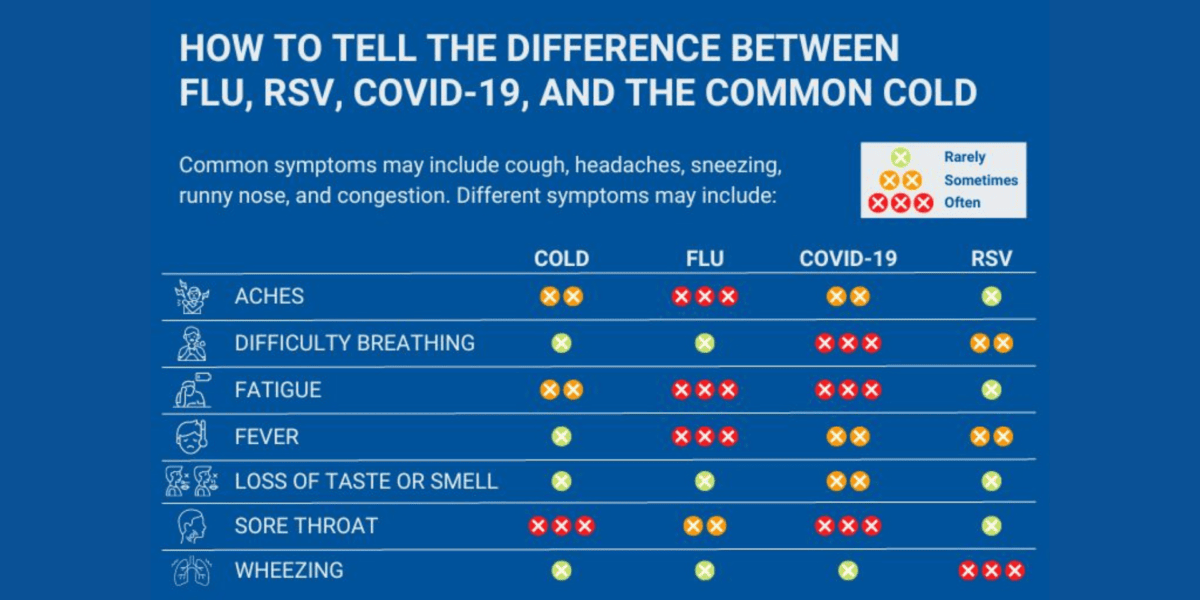
Is It Flu, COVID-19, or RSV? How to Tell the Difference
Is it a cold that is causing your cough or runny nose? Or could it be something potentially more serious? Although symptoms can be similar, treatment options may differ …
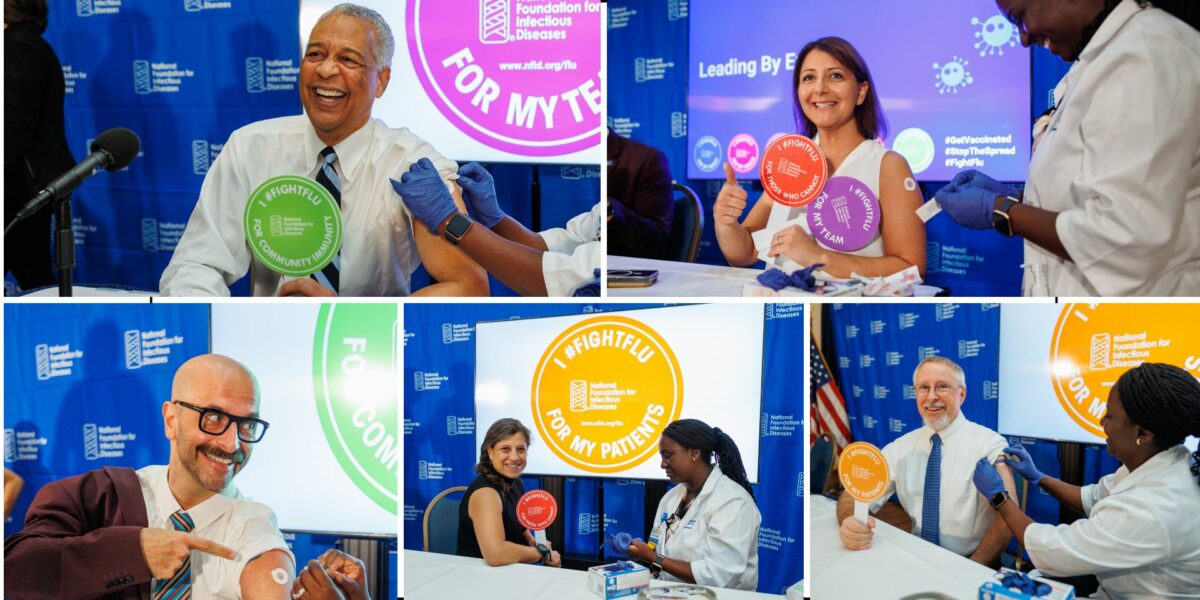
Help Prevent Flu, COVID-19, and RSV This Season
NFID and CDC experts urge vaccination to help protect against COVID-19, flu, pneumococcal disease, and RSV …

